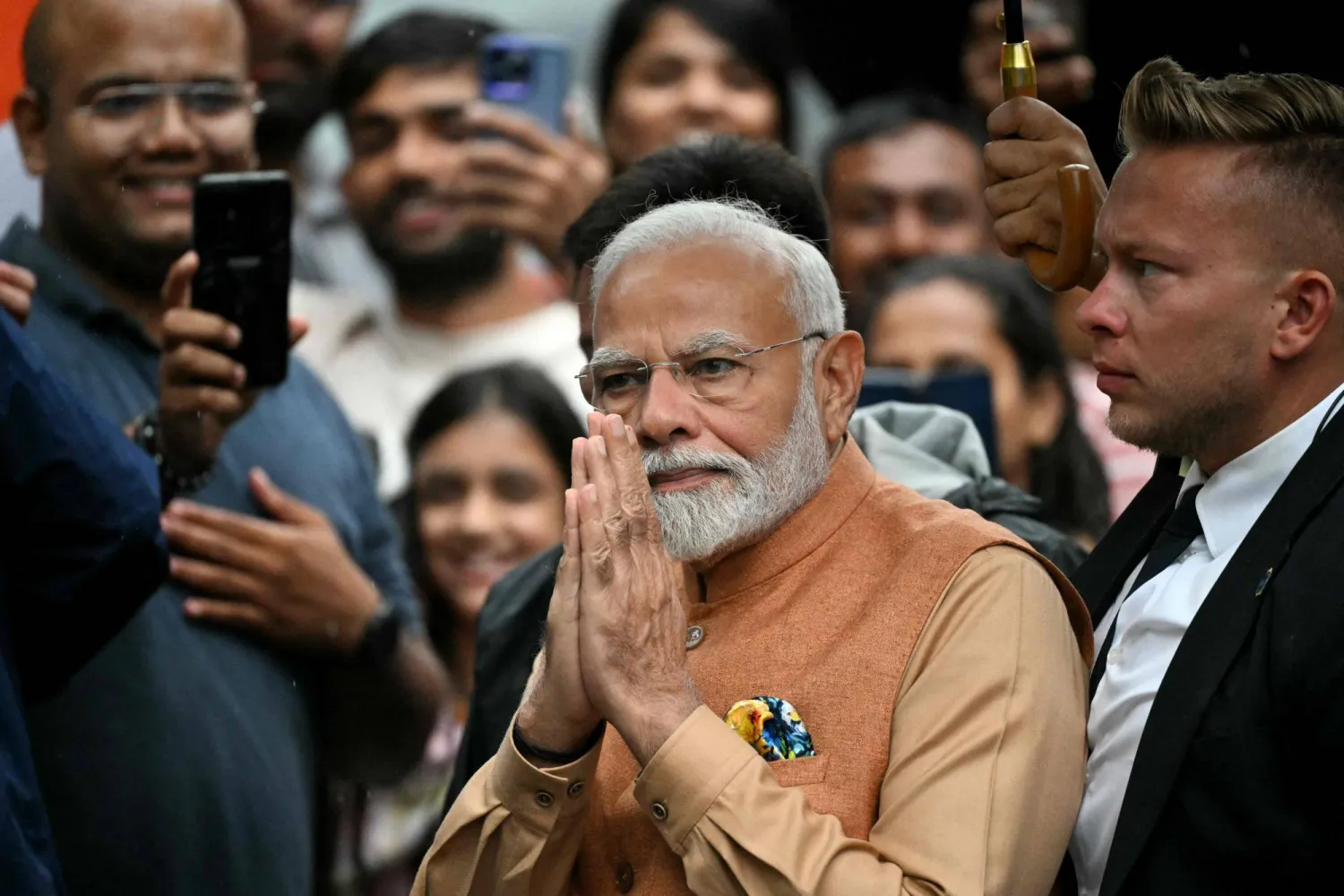India's Narendra Modi arrived in wartime Kyiv on Friday for talks with President Volodymyr Zelenskiy, the first trip by an Indian prime minister to Ukraine since Kyiv gained independence from the Soviet Union in 1991.
The visit comes at a volatile juncture in the war in Ukraine, with Ukrainian forces still in Russia's western Kursk region following their incursion on Aug. 6 and Russian troops grinding out slow but steady advances in Ukraine's east.
The visit, which follows a trip by Modi to Moscow in July, is important for Western-backed Kyiv, which has been trying to nurture diplomatic relations in the Global South in its efforts to secure a fair settlement to end the war.
"I look forward to the opportunity to ... share perspectives on peaceful resolution of the ongoing Ukraine conflict," Modi said before the trip. "As a friend and partner, we hope for an early return of peace and stability in the region."
Modi's visit to Moscow last month coincided with a heavy Russian missile strike on Ukraine that hit a children's hospital. The attack prompted Modi to use emotive language to deliver an implicit rebuke to Putin at their summit.
But the trip elicited fierce criticism from Zelenskiy who said it was a "huge disappointment and a devastating blow to peace efforts to see the leader of the world's largest democracy hug the world's most bloody criminal in Moscow on such a day".
Mykhailo Podolyak, an adviser in the Ukrainian president's office, told Reuters Modi's visit to Kyiv was significant because New Delhi "really has a certain influence" over Moscow.
"It's extremely important for us to effectively build relations with such countries, to explain to them what the correct end to the war is - and that it is also in their interests," he said.
India, which has traditionally had close economic and defense ties with Moscow, has publicly criticized the deaths of innocent people in the war.
But it has also strengthened its economic ties with Moscow after Western nations imposed sanctions on Russia and cut trade relations with it over its invasion.
Indian refiners which rarely bought Russian oil in the past have emerged as Moscow's top clients for seaborne oil since Russia poured troops into Ukraine in February 2022. Russian oil accounts for over two-fifths of India's oil imports.
PEACE VISION
Ukraine has said it hopes to bring together a second international summit later this year to advance its vision of peace and involve representatives from Russia.
The first summit in Switzerland that pointedly excluded Russia in June attracted scores of delegations, including one from India, but not from China, the world's second largest economy.
"Lasting peace can only be achieved through options that are acceptable to both parties. And it can only be a negotiated settlement," Tanmaya Lal, Secretary (West) in the Indian foreign ministry, told reporters.
"This is an important visit that is expected to catalyze our ties in a whole range of sectors," Lal said, listing economic and business links, agriculture, infrastructure, health and education, pharmaceuticals, defense and culture.
Volodymyr Fesenko, a Kyiv-based political analyst, said he expected no breakthrough proposals to be made to end the war during the trip by Modi, who visited Poland on Thursday.
For there to be an attempt to negotiate, the military situation has to stabilize and the presidential election must be held in the United States, a close ally of Ukraine, he said.
He said the visit was important for India to demonstrate it was "not on Russia's side" and that Kyiv wanted to normalize relations after Modi's Moscow trip.
Richard Verma, U.S. deputy secretary of state for management and resources and a former U.S. ambassador to India, said on Wednesday that the trip to Kyiv was important.
"I appreciated some of the things that the prime minister has said, that this is not the time for war, this is a time for peace, but this is a very consequential period for the defense of liberty, freedom and the rule of law," he said.
Indian PM Modi Arrives in Kyiv for Talks with Ukraine's Zelenskiy

Indian Prime Minister Narendra Modi gestures as he arrives to pay his respects at the Jam Saheb of Nawanagar Memorial at the Good Maharaja Square, Poland on August 21, 2024. (Photo by Sergei GAPON / AFP)

Indian PM Modi Arrives in Kyiv for Talks with Ukraine's Zelenskiy

Indian Prime Minister Narendra Modi gestures as he arrives to pay his respects at the Jam Saheb of Nawanagar Memorial at the Good Maharaja Square, Poland on August 21, 2024. (Photo by Sergei GAPON / AFP)
لم تشترك بعد
انشئ حساباً خاصاً بك لتحصل على أخبار مخصصة لك ولتتمتع بخاصية حفظ المقالات وتتلقى نشراتنا البريدية المتنوعة







